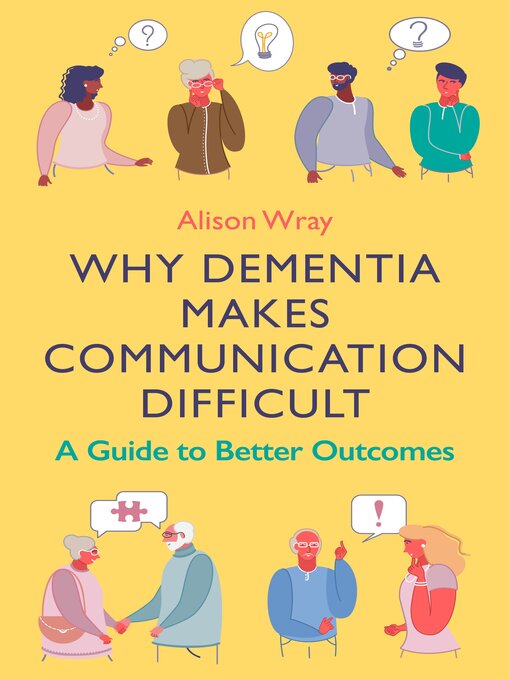Selected for Reading Well for Dementia 2024: endorsed by health experts, charities and people affected by dementia.
Dementia brings many challenges, not least its ability to disrupt effective communication. The quality of communication plays a major role in how well people living with a dementia manage. When communication doesn't work well, the complications of dementia are compounded.
Rather than only offering tips on what to say and how to say it, this book explores the underlying motivations of communication, so we can better understand why we say what we do, why we say it the way we do, what can go wrong, and how attempts to fix things can go awry.
As well as considering why communication goes wrong in day-to-day conversations, the chapters offer advice on dealing with awkward moments, the question of deception, and the things we can and can't control in dementia. Readers are asked to reflect on their own role, and how they can manage their own behaviours to avoid unintentionally blocking routes to productive communication.
Including clear action points for carers, bystanders and people with a dementia diagnosis, this book shows how to approach communication to improve outcomes.
- Lived experience of Dementia
- Lewy body dementias
- Frontotemporal Dementia
- Younger Onset Dementia
- LGBTI and dementia
- Eating and drinking well
- Activities and Engagement
- Culture, Religion and Spirituality
- End of Life and Palliative Care
- Younger Readers
- See all living with dementia collections
- Caregiving : Support and Guidance
- About Dementia
- Early Stage Dementia
- Communication
- Changes in behaviour
- Grief and Loss
- Relationships, Intimacy & Sexuality
- Residential Care
- See all caregiving collections
- Dementia Care Practice
- Person-Centred Care
- About Dementia
- Dementia Care Therapies
- Pain and Dementia
- Exercise
- Leadership and organisational change
- Elderhood
- Changes in behaviour
- See all healthcare professionals collections
- Dementia Australia resources
- Audiobooks
- Australian content
- Memoir
- Fiction
- Brain health
- Worried About Your Memory?
- Reminiscence and life story work
- Exercise
- Mindfulness & meditation
- Self-care & Wellbeing
- See all featured collections collections
